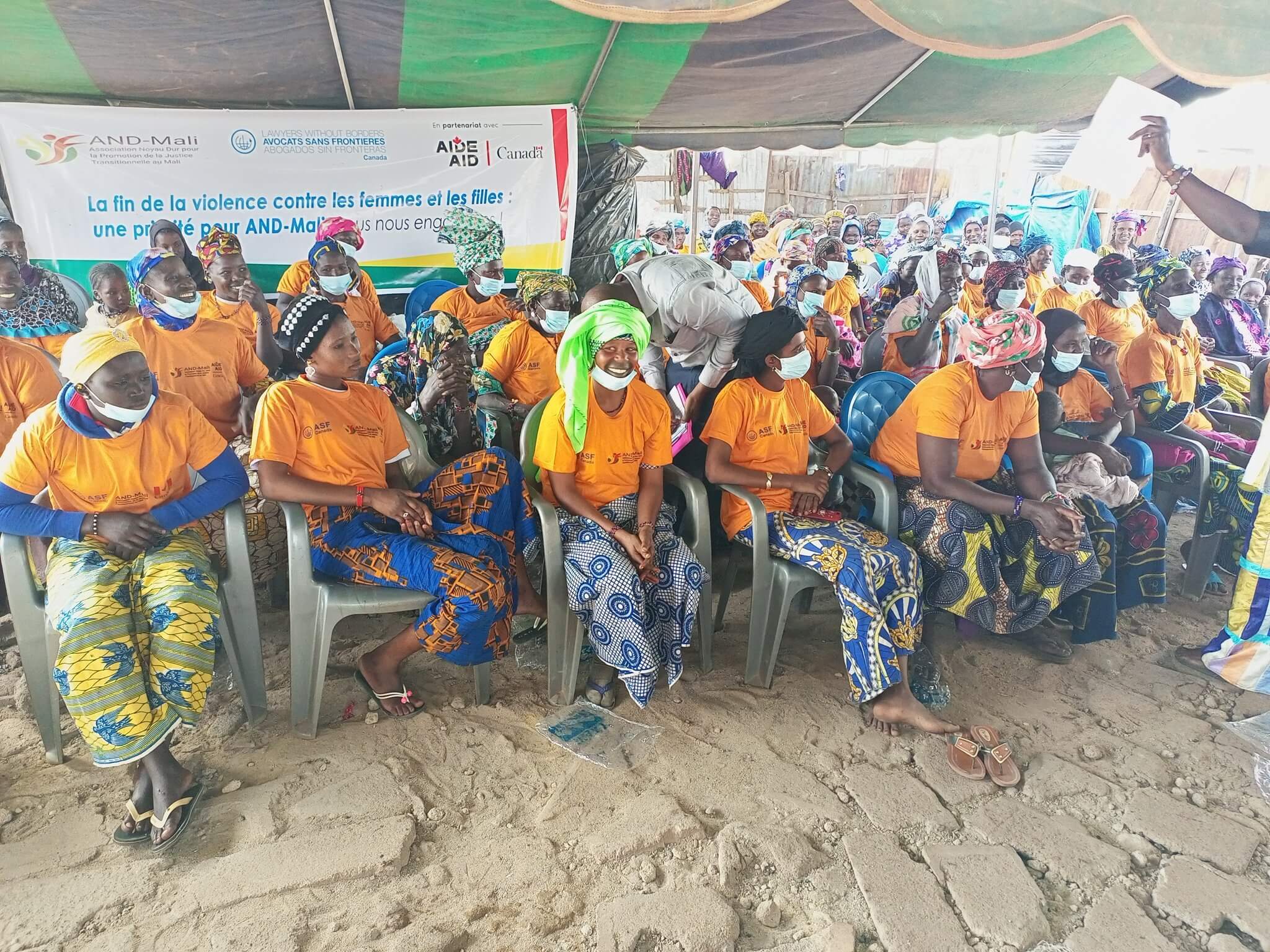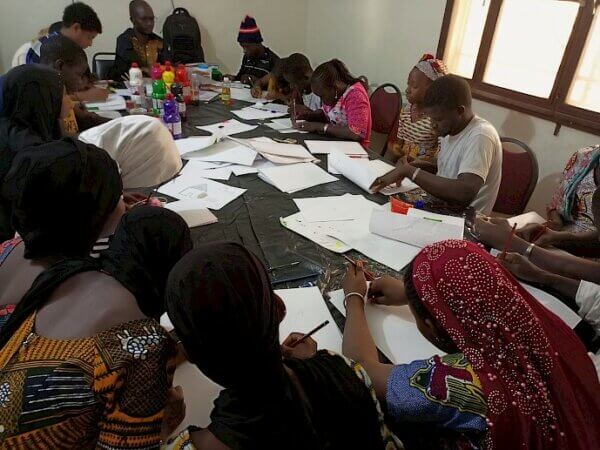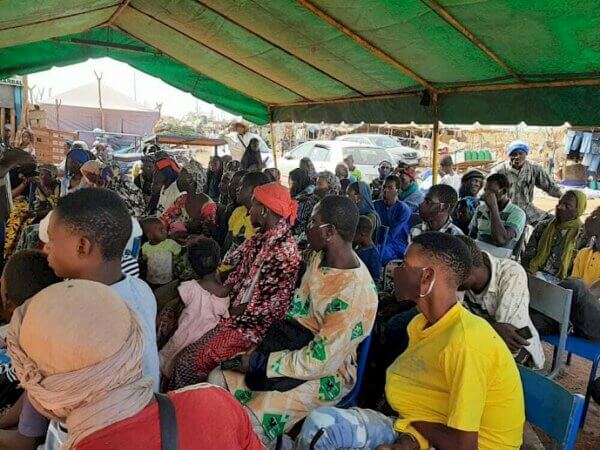Internally displaced youth increasingly involved in the transitional justice process in Mali
- News
8 February 2022

Thanks to the support of Lawyers Without Borders Canada and its partners UNDP and UNICEF, internally displaced youth, present at the Niamana, Centre Mabilé, Senou, Faladiè, Mountougoula and Guana sites, are now claiming their rightful place in the transitional justice process.
Since the 2012 political and security crisis, Mali has faced a high level of insecurity, mainly in the north and center. This security crisis, exacerbated by the presence of extremist armed groups, has prompted many residents to move to the southern regions of the country and the Bamako district to flee the violence.
Between January and May 2021, the United Nations Coordination of Humanitarian Affairs (OCHA) counted 386,000 internally displaced persons from the regions of Mopti, Gao, Timbuktu, Segou and Menaka. These people, the majority of whom are women (55%) and children (63% are under the age of 18), find themselves in extremely precarious situations.
In Bamako, IDPs are distributed mainly among four sites. Without resources, they live on a day-to-day basis through small daily labor or begging. Children’s education, access to basic social services and basic needs are severely compromised. This situation of vulnerability is exacerbated by the promiscuity that promotes the spread of COVID-19.
Workshops to make internally displaced youth feel concerned

Displaced people are freeing their words through slam and drawing.
Lawyers Without Borders Canada firmly believes that it is possible for Mali to reconcile with its past and build a society capable of preventing the recurrence of violence. Hence its contribution to the sensitization and training of internally displaced youth (aged 15 to 30) on human rights and the transitional justice process in Mali. A program that will allow these young women, men and teenagers to make their voices heard, which until now was almost non-existent.
A total of 300 young women and men from Timbuktu, Gao and Bamako contributed to a study on youth participation in the transitional justice process. The study will serve as an advocacy tool for policymakers to better address their needs and expectations in order to facilitate their active participation in the transitional justice process, including through future mechanisms such as the soon-to-be-established Agency for the Administration of Reparations and Centre for Remembrance, Unity and Peace.
Workshops allowed young people from displaced sites to free their words through drawing, poetry and slam on the themes of peace, reconciliation, social cohesion and to tell the violations that they lived and that led them to move to survive.
“Today, I have understood that this transitional justice concerns me, concerns youth, and that I have my say on this. Now, at the end of this meeting, we will do everything possible to support the transitional justice process; why not be strong players in it.”
A young man victim of the Goundam Circle conflict during an sensitization workshop in July 2021
Through this support, 1,600 young victims were sensitized on the transitional justice process; 226 made their statements to the TRC.
United to make the voices of those who do not have a voice heard

A group of internally displaced persons in the Bamako camps is being sensitized on transitional justice mechanisms.
Support for young internally displaced persons is provided through three associations of Malian civil society: the Réseau de Jeunes pour une Justice Transitionnelle Inclusive au Mali (R2JTIM) in Timbuktu, the Tribune Jeunes pour le Droit au Mali (TRIJEUD) in Gao and the Association Noyau Dur (AND-Mali) in Bamako. Since 2020, these associations have been working with Lawyers without Borders Canada, UNICEF and UNDP within the framework of the project “Support for Youth Participation in Reconciliation Processes”.